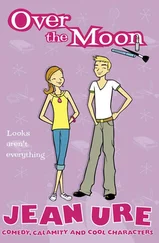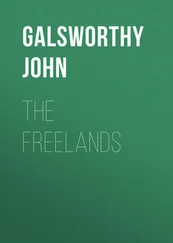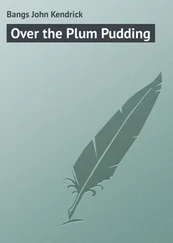John Galsworthy - Over the River
Здесь есть возможность читать онлайн «John Galsworthy - Over the River» весь текст электронной книги совершенно бесплатно (целиком полную версию без сокращений). В некоторых случаях можно слушать аудио, скачать через торрент в формате fb2 и присутствует краткое содержание. Жанр: Классическая проза, на английском языке. Описание произведения, (предисловие) а так же отзывы посетителей доступны на портале библиотеки ЛибКат.
- Название:Over the River
- Автор:
- Жанр:
- Год:неизвестен
- ISBN:нет данных
- Рейтинг книги:3 / 5. Голосов: 1
-
Избранное:Добавить в избранное
- Отзывы:
-
Ваша оценка:
- 60
- 1
- 2
- 3
- 4
- 5
Over the River: краткое содержание, описание и аннотация
Предлагаем к чтению аннотацию, описание, краткое содержание или предисловие (зависит от того, что написал сам автор книги «Over the River»). Если вы не нашли необходимую информацию о книге — напишите в комментариях, мы постараемся отыскать её.
Over the River — читать онлайн бесплатно полную книгу (весь текст) целиком
Ниже представлен текст книги, разбитый по страницам. Система сохранения места последней прочитанной страницы, позволяет с удобством читать онлайн бесплатно книгу «Over the River», без необходимости каждый раз заново искать на чём Вы остановились. Поставьте закладку, и сможете в любой момент перейти на страницу, на которой закончили чтение.
Интервал:
Закладка:
“The lawyers say we need none of us worry any more about those costs, dad; they’ve come to an arrangement.”
“How?”
“They don’t say, but they want your mind relieved.”
“I don’t understand lawyers,” muttered the General, “but if they say it’s all right, I’m very glad. I’ve been worrying.”
“Yes, dear. Coffee?”
But she resumed her meditations on that cryptic letter. Did something in Jerry Corven’s conduct force him to agree to this ‘arrangement’? Was there not someone called ‘The King’s Proctor’ who could stop decrees being granted? Or—what?
Abandoning her first idea of driving over to Tony Croom because of the questions he might ask, she wrote to him and to Clare instead. The more, however, she pondered over the wording of the solicitor’s letter, the more convinced she became that she must see ‘very young’ Roger. There was that at the back of her mind which refused quietus. She, therefore, arranged to see him at a teashop near the British Museum on his way homeward from the City, and went there direct from her train. The place was an ‘artifact,’ designed, so far as a Regency edifice could be, to reproduce such a ‘coffee house’ as Boswell and Johnson might have frequented. Its floor was not sanded, but looked as if it should be. There were no long clay pipes, but there were long cardboard cigarette-holders. The furniture was wooden, the light dim. No record having been discovered of what the ‘staff’ should look like, they looked sea-green. Prints of old coaching inns were hung on walls panelled by the Tottenham Court Road. Quite a few patrons were drinking tea and smoking cigarettes. None of them used the long cardboard holders. ‘Very young’ Roger, limping slightly, and with his customary air of not being quite what he ought to be, uncovered his sandyish head and smiled above his chin.
“China or Indian?” said Dinny.
“Whatever you’re having.”
“Then two coffees, please, and muffins.”
“Muffins! This IS a treat, dear papa. Those are quite good old copper bed-warmers, Miss Cherrell. I wonder if they’d sell them.”
“Do you collect?”
“Pick things up. No use having a Queen Anne house unless you can do something for it.”
“Does your wife sympathise?”
“No, she’s all for the T.C.R., bridge, golf, and the modernities. I never can keep my hands off old silver.”
“I HAVE to,” murmured Dinny. “Your letter was a very pleasant relief. Did you really mean that we should none of us have to pay?”
“I did.”
She considered her next question, scrutinising him through her lashes. With all his æsthetic leanings, he looked uncommonly spry.
“In confidence, Mr. Forsyte, how did you manage to make that arrangement? Had it to do with my brother-inlaw?”
‘Very young’ Roger laid his hand on his heart.
“‘The tongue of Forsyte is his own,’ cf. Marmion. But you needn’t worry.”
“I need, or shall, unless I know it wasn’t that.”
“Make your mind easy, then; it had nothing to do with Corven.”
Dinny ate a muffin in complete silence, then spoke of period silver. ‘Very young’ Roger gave an erudite dissertation on its mark—if she would come down for a week-end, he would turn her into a connoisseur.
They parted cordially, and Dinny went towards her Uncle Adrian’s. That uneasiness was still at the back of her mind. The trees had leaved enticingly these last warm days; the Square wherein he dwelled had an air quiet and green, as if inhabited by minds. Nobody was at home. “But,” said the maid, “Mr. Cherrell is sure to be in about six, miss.”
Dinny waited in a small panelled room full of books and pipes and photographs of Diana and the two Ferse children. An old collie kept her company, and through the opened window seeped the sounds of London streets. She was crumpling the dog’s ears when Adrian came in.
“Well, Dinny, so it’s over. I hope you feel better.”
Dinny handed him the letter.
“I know it’s nothing to do with Jerry Corven. You know Eustace Dornford, Uncle. I want you to find out from him quietly whether it’s he who is paying these costs.”
Adrian pulled at his beard.
“I don’t suppose he’d tell me.”
“Somebody must have paid them, and I can only think of him. I don’t want to go to him myself.”
Adrian looked at her intently. Her face was concerned and brooding.
“Not easy, Dinny; but I’ll try. What’s going to happen to those two?”
“I don’t know, they don’t know; nobody knows.”
“How are your people taking it?”
“Terribly glad it’s over, and don’t care much now it is. You’ll let me know soon, won’t you, Uncle dear?”
“I will, my dear; but I shall probably draw blank.”
Dinny made for Melton Mews, and met her sister on the doorstep. Clare’s cheeks were flushed; there was febrility in her whole manner and appearance.
“I’ve asked Tony Croom here this evening,” she said, when Dinny was leaving to catch her train. “One must pay one’s debts.”
“Oh!” murmured Dinny, and for the life of her could say no more.
The words haunted her in the bus to Paddington, in the refreshment room while she ate a sandwich, in the railway carriage going home. Pay one’s debts! The first canon of self-respect! Suppose Dornford had paid those costs! Was she as precious as all that? Wilfrid had had all of her according to her heart and her hope and her desire. If Dornford wanted what was left over—why not? She dropped thinking of herself and went back to thought of Clare. Had she paid her debt by now? Transgressors by law—ought to transgress! And yet—so much future could be compromised in so few minutes!
She sat very still. And the train rattled on in the dying twilight.
CHAPTER 35
Tony Croom had spent a miserable week in his converted cottages at Bablock Hythe. The evidence given by Corven on his recall to the box had seared him, nor had Clare’s denial anointed the burn. In this young man was an old-fashioned capacity for jealousy. That a wife should accept her husband’s embrace was not, of course, unknown; but, in the special circumstances and states of feeling, it had seemed to him improper, if not monstrous, and the giving of his own evidence, directly after such a thrust at his vitals, had but inflamed the wound. A sad unreason governs sex; to be aware that he had no right to be suffering brought no relief. And now, a week after the trial, receiving her note of invitation, he had the impulse not to answer, to answer and upbraid, to answer ‘like a gentleman’—and, all the time, he knew he would just go up.
With nothing clear in his mind and that bruise still in his heart, he reached the Mews an hour after Dinny had gone. Clare let him in, and they stood looking at each other for a minute without speaking. At last she said with a laugh:
“Well, Tony! Funny business—the whole thing, wasn’t it?”
“Exquisitely humorous.”
“You look ill.”
“You look fine.”
And she did, in a red frock open at the neck, and without sleeves.
“Sorry I’m not dressed, Clare. I didn’t know you’d want to go out.”
“I don’t. We’re going to dine in. You can leave the car out there, and stay as long as you like, and nobody the worse. Isn’t it nice?”
“Clare!”
“Put your hat down and come upstairs. I’ve made a new cocktail.”
“I take this chance to say I’m bitterly sorry.”
“Don’t be an idiot, Tony.” She began to mount the spiral stairway, turning at the top. “Come!”
Dropping his hat and driving gloves, he followed her. To the eyes of one throbbing and distraught, the room above had an air of preparation, as if for ceremony, or—was it sacrifice? The little table was set out daintily with flowers, a narrow-necked bottle, green glasses—the couch covered with some jade-green stuff and heaped with bright cushions. The windows were open, for it was hot, but the curtains were nearly drawn across and the light turned on. He went straight across to the window, stifled by the violent confusion within him.
Читать дальшеИнтервал:
Закладка:
Похожие книги на «Over the River»
Представляем Вашему вниманию похожие книги на «Over the River» списком для выбора. Мы отобрали схожую по названию и смыслу литературу в надежде предоставить читателям больше вариантов отыскать новые, интересные, ещё непрочитанные произведения.
Обсуждение, отзывы о книге «Over the River» и просто собственные мнения читателей. Оставьте ваши комментарии, напишите, что Вы думаете о произведении, его смысле или главных героях. Укажите что конкретно понравилось, а что нет, и почему Вы так считаете.












